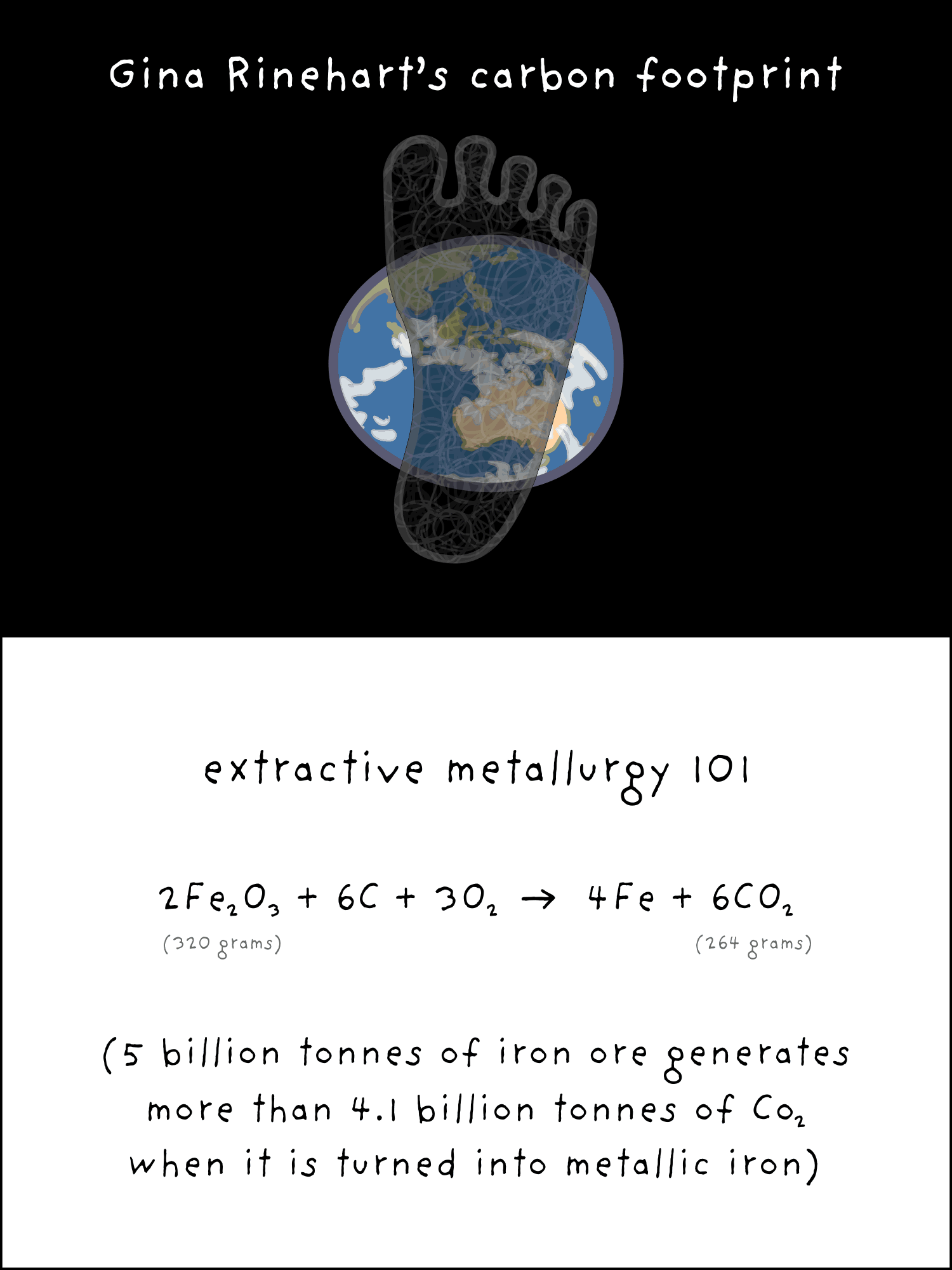
Most of the global economy is based on the idea of selling physical products. And if you’re not selling something yourself, your clients are people that do.
B I’ve noticed that in some environmental discussions and debates, Westerners automatically assume that their country is less polluting than poorer countries. I don’t think pointing the finger at China really helps. And here’s why:
I think our blatant consumerism in the West doesn’t compare favourably to the third world, because all of the things that we buy have a kind of “environmental footprint” if you like. And note that I’m not even really talking about CO2 emissions here (even though the US carbon emission per capita is 17.56 metric tons while that of China is ‘only’ 6.19 metric tons per capita). Carbon is not the only element on the periodic table although it is the one that goes into the atmosphere more than the others.
If China pollutes rivers or whatever making loads of stuff for the West, who is really doing (causing) the polluting? The chinese manufacturers? Or is the Western consumer demand for those products ultimately to blame?
My main backround if materials science. One of the more eye-opening subjects I found out about (in terms of environmental degradation) is called “extractive metallurgy”. Extractive metallurgy is the study of chemical processes that we use to extract an refine metals from their ores. Basically, in a nut shell, all materials have to come from somewhere. Ususally it’s either the Earth’s crust itself or sea water.
In most of the processes, you need either need huge amounts of electricity and/or high temperatures and/or huge amounts of other chemicals to obtain the desired elements and/or compounds.
For example, here is just one of the many steps in the refinement of germanium:
GeO2 + 4 HCl → GeCl4 + 2 H2O
In this step, the reactive gas chlorine is being used to make germanium more reactive. So chlorine, which is toxic, is used in one of the processes to extract the element germanium from its oxide. Okay.
And here is just one of the steps in tellurium refinement:
HTeO−3 + OH− + H2SO4 → TeO2 + SO2−4 + 2 H2O
In this step, sulfuric acid is being used to make tellurium more reactive. Okay.
And where are germanium and tellurium being used you ask? They are two semiconductors that are the basis for integrated circuits and other electronic components in all sorts of electronic devices. Not so good.
In fact, many other nasty chemical compounds are used in the extraction, refinement and manufacturing industries. Many others.
I’m not 100% sure, but I think the worst offenders are the electronic consumer devices, simply because they contain the most number of hard-to-extract elements. The harder-to-extract elements require more chemical treatment steps. That’s just one of the reasons why they these elements are so expensive (not just that they’re rare). In fact I can probably go so far as to invent a new theory, which goes something like this: “the higher the unit price of an element, the more damaging its extraction process is to the environment.” But I digress…
Here’s the thing. There are a lot of chemical elements used in computers and extracting them from the ground and processing them taxes the environment (especially when you consider all of the planned obsolesence we see today). Our current way of life creates more and more electronic waste that cannot be recovered or recycled (except perhaps the gold bits)
I recently asked a few questions on Quora and I’d like to share those questions and answers with you now. Listed here are some of the toxic chemicals and semiconductors that are used in electonic decices. Go on, take a look. Can you begin to see how big the problem is now?
The point is, nasty chemicals are used at all steps of the extraction and refinement process. We just don’t ever see them being used in industry. Oh but they’re there alright. They’re being used all the time.
Suffice it to say that if Westeners think they pollute the Earth less than a typical 3rd-worlder, in my eyes, they are sorely mistaken.
Because every single thing that you buy has a kind of a ‘footprint’ if you like. And the carbon footprint is not the only footprint. You may not ever see that footprint, because mining, extraction, manufacturing, production, assembly and distribution all take place in another country. But my point is, aren’t us Westerners the real culprits? Aren’t we still responsible for it?
I think the term “emerging market” has become a euphamism for “exploit nature in a place that has more relaxed environmental controls”.
The trouble is, even if everybody started buying all sorts of wood/cotton based products, more forests etc would probably have to be cut down to make way for plantation timber and agriculture. And I don’t want to see that happen. I don’t think anyone wants to see that happen. I think even billionaires and developers would still rather preserve natural spaces (if they could).
If you’ve read this far and you’re still not depressed enough to kill yourself, then here is my one biggest suggestions.
This is the solution. Are you ready? My professional scientific advice to Westerners is quite simply to buy services, not physical products. Buy less not more. Own less, not more. Work less, not more.
Buy less material goods and then start donating the money that you save to environmental charities instead.

Leave a Reply